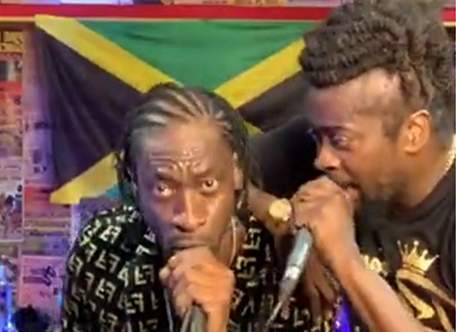By Yasmine Peru – STAR Writer—

Bounty Killer has been without a US visa for sometime.—
The Jamaica Federation of Musicians and Affiliated Unions (JFMAU) and the Jamaica Reggae Industry Association (JaRIA) say there is nothing they can do to assist reggae artistes with getting back their visas and work permits that have been revoked.
“To my knowledge, there is nothing we can do other than provide a form of reference. Consular services are totally controlled by the foreign embassy’s rules/protocols. We do act as a type of reference for musicians who apply for work visas from embassies, verifying that they are practitioners in the entertainment industry,” Rory Frankson, chairman of the COVID-19 Response at the JFMAU, told THE STAR.

JaRIA president, Ewan Simpson, explained that his organisation usually makes recommendations towards receipt of work permits by endorsing the industry bonafides of artistes.
“The issue of visas, though, is usually a direct matter between the embassy and the artistes, and where there is a revocation, it is usually difficult to intervene especially because the reason for the revocation is not normally given,” Simpson said.

In an Instagram live following Saturday’s historic Verzuz clash between Beenie Man and Bounty Killer, one of the organizers, Swizz Beatz said Beenie and Bounty were left on the side of the road, but he wasn’t specific. Since it has been revealed that both artistes have had their United States work permits revoked, fingers are being pointed in several directions.
“I am not sure what he means by left by the side of the road,” Simpson said. “At the end of the day, even government ministers lose their visas and there is very little that the Government, in its sovereignty, can do. Sometimes we have to appreciate our limitations.”
EMAIL ADVISORY
He added: “Bear in mind that there are certain immunities that are privileges granted as part of the comity between states. Entertainers don’t qualify for that in most parts of the world.”

In a 2018 interview with this newspaper, Bounty Killer said that he longed for the opportunity to travel to the United States in order to perform.
“When an artiste cannot go to and fro to spread the word, earn a money, and greet his fans, it naturally a guh slow up his career. A star cannot shine in his house, and Jamaica is like my house, and I need to go outside in the world,” he said.
Bounty Killer’s US visa was cancelled in 2010. At the time, an email advisory was sent to airlines not to board the artiste as well as three other deejays, as their visas were being revoked.
JaRIA, which brands itself as the vehicle through which the Jamaican music industry professionals can continuously collaborate with each other, also lobbies on behalf of its members. But as Simpson points out, “At the end of the day, if the USA, in particular, decides to exercise its jurisdiction to grant or not grant a visa, there is little our government can do and even less that an industry association that doesn’t wield economic power can do.”

Frankson pointed out that the Ministry of Culture, Gender Entertainment and Sport has an Entertainment Registry that also serves as a verification body, and will write the embassy on behalf of artistes.
The aims and objectives of the JFMAU are the promotion of live music, the improvement of musical talent, working conditions, establishing and maintaining uniform and fair prices for musicians and artistes’ services, as well as protecting the interests of all its affiliates.


You must log in to post a comment.